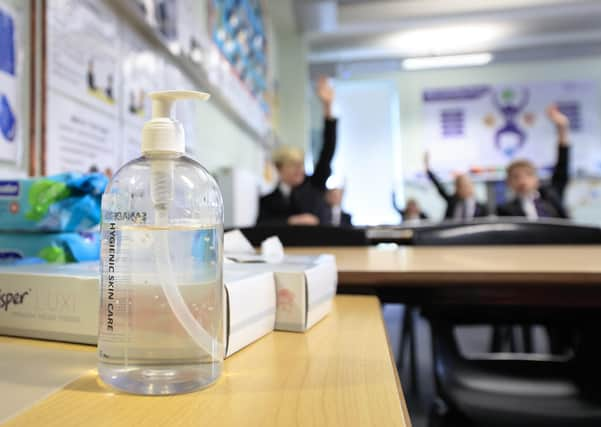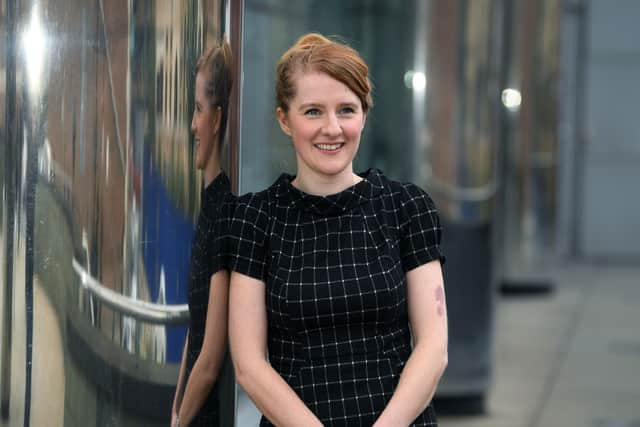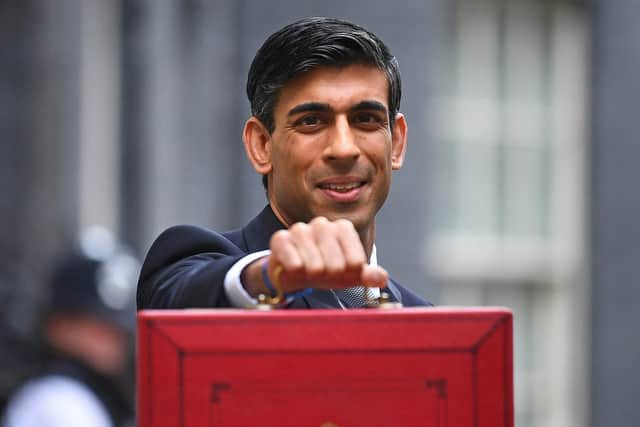What North’s schools expect from Rishi Sunak’s Budget – Fiona Spellman


There is no levelling up without a serious and sustained commitment both to funding education based on need, and to changing how and where money is spent.
Currently huge sums of public money are being spent in the wrong places in education, attempting to compensate or correct for educational failure rather than prevent it.
Advertisement
Hide AdAdvertisement
Hide AdWe need a fundamental shift in our approach to funding education, one that is based on early identification of needs and placing the right resources early enough in the system to ensure that these can be met. There are four key undertakings that children in the North need from the Budget:


A long-term funding settlement for the early years sector that provides both graduate-led provision and in-work progression opportunities.
Direct support for families in the early years who do not take up their free entitlement.
A sustained commitment to the Pupil Premium, targeted at children who are experiencing long-term disadvantage.
Advertisement
Hide AdAdvertisement
Hide AdA 10-year core funding settlement for schools that enables them to plan their allocation of resources for the long-term.


Research consistently shows that disadvantaged children are beginning school with significant gaps in literacy and numeracy skills.
The difference in the educational development of children from poorer families and more affluent backgrounds by the time a child finishes reception is almost twice as large in the North of England as it is in London.
The attainment gap continues to grow as children journey through school.
Advertisement
Hide AdAdvertisement
Hide AdThere is strong evidence that a well-trained, highly-qualified early years workforce, with access to ongoing professional development, is vital to closing the achievement gap between children from poorer homes and their peers.
Working in the early years should not be a less well-paid, lower-status and less-skilled job than working with older children.
Yet, a recent survey found that one-in-four nurseries could close due to the economic impact of Covid-19. These nurseries serve not only as educational establishments but also as centres for parental support, early identification of safeguarding requirements and special educational needs. It is vital that we do not allow this crucial part of our system to be lost.
The policy aim of early years should be to ensure all children begin school with the requisite skills they need to learn, and this must place at least as much emphasis on what’s happening at home as what goes on in professional settings.
Advertisement
Hide AdAdvertisement
Hide AdMeanwhile, schools need to be funded and recognised appropriately for the job they are asked to do. This begins with an acknowledgement that children have different starting points.
Research consistently proves that school results remain stubbornly tied to socio-economic context. In general terms, the more deprived a school’s intake is, the worse its results.
The current ranking system for schools ends up unfairly labelling schools in areas of high deprivation as ‘failing’ when in fact they are often doing anything but.
Even before lockdown began, data from the School Cuts Coalition showed a shortfall in funding across Yorkshire of almost £500m, with 90 per cent of schools affected, and with the heaviest burden often falling in the poorest areas.
Advertisement
Hide AdAdvertisement
Hide AdAnalysis from the Institute for Fiscal Studies has shown that per-pupil funding has fallen by eight per cent since 2010, just as needs have been rising in many areas.
The gaping attainment gap between the poorest students and their wealthier peers had stopped narrowing even before lockdown began. It seems inevitable the learning loss of pandemic will only serve to heighten the problem.
The Chancellor should target additional funding for schools based on long-term need, drawing on data from the Northern Powerhouse Partnership. He should also heed the call of Robert Halfon MP to commit a 10-year funding settlement for schools.
It is crucial for the future of the North, and our country as a whole, that all our children receive the resources that they need to succeed at school and beyond. This isn’t just about more money, but about spending money earlier and smarter in the system, focusing on prevention rather than cure.
Advertisement
Hide AdAdvertisement
Hide AdFiona Spellman is chief executive of SHINE, the North of England education charity.
Support The Yorkshire Post and become a subscriber today. Your subscription will help us to continue to bring quality news to the people of Yorkshire. In return, you’ll see fewer ads on site, get free access to our app and receive exclusive members-only offers. Click here to subscribe.
Comment Guidelines
National World encourages reader discussion on our stories. User feedback, insights and back-and-forth exchanges add a rich layer of context to reporting. Please review our Community Guidelines before commenting.